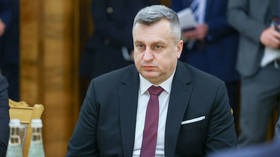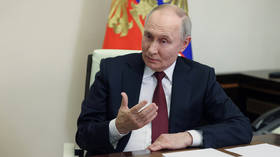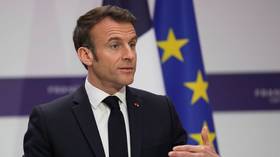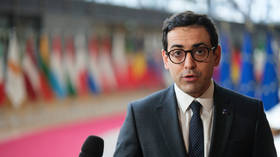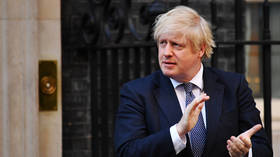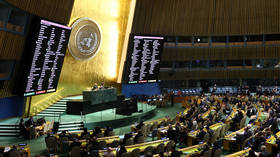LuxLeaks trial: Corruption watchdog says sentence increases fears for whistleblowers
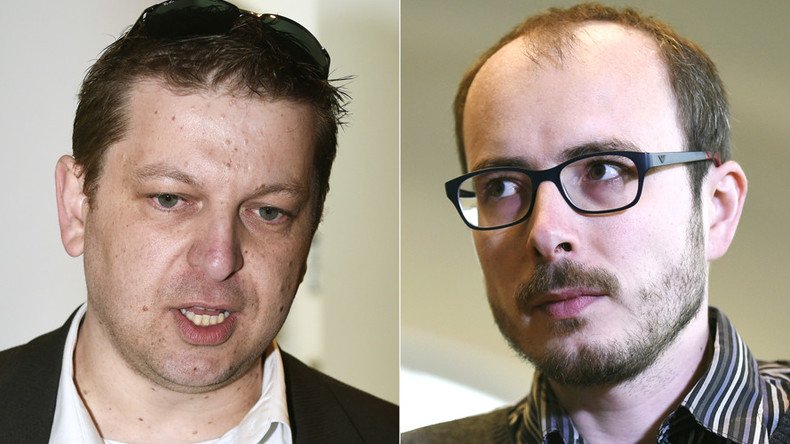
The sentence handed out in the LuxLeaks trial has made whistleblowers more frightened of coming forward, a Transparency International official told RT. That’s after two men who revealed tax avoidance deals in Luxemburg were found guilty and given suspended jail time.
“Transparency International is very disappointed with the verdict on the LuxLeaks whistleblowers,” Anja Osterhaus, regional program manager for Transparency International, a global anti-corruption organization, told RT.
#Luxleaks verdict: very bad news for #whistleblowers - we need better protection & support! https://t.co/Cs3fsUgIUXhttps://t.co/ADM4DVdTJE
— Anja Osterhaus (@anja_osterhaus) June 29, 2016
“It’s very bad news for whistleblowers, the sentence. We are afraid this can add to the fears these people [have],” Osterhaus said, adding that while the certain level of danger in exposing illegalities has not stopped people from blowing the whistle up until now, the LuxLeaks verdict and its ilk may increase fears and silence those who have something to say.
“They already knew that it’s risky and potentially even dangerous to speak about wrongdoing or unethical conduct or other problems of public interest. And now unfortunately it has been confirmed that the ones who end up being accused and sentenced are the ones who inform the public about these illegal activities or unethical conduct, not the ones who are [actually guilty] of them.”
#Whistleblowers are heroes! #LuxLeaks guilty verdict is appalling. We'll keep fighting to protect whistleblowers! pic.twitter.com/Cz7RzxQBMl
— Transparency Int'l (@anticorruption) June 29, 2016
“We are afraid this can be a further deterrent for whistleblowing,” Osterhaus said.
The two sentenced whistleblowers, Raphael Halet and Antoine Deltour, are former employees of PricewaterhouseCoopers (PwC), a multinational corporation that provides audit, tax and consulting services. On Wednesday, a court in Luxembourg found them guilty of breaching secrecy laws by stealing confidential tax files that helped launch a global scandal in 2014 over fiscal deals made by Luxembourg banks to hundreds of international companies, including such giants as Pepsi, Apple, Ikea and Walt Disney. The arrangements helped these companies save billions of dollars in taxes, according to the leaked documents.
The two got suspended sentences of 9 months and 12 months, respectively, and were ordered to pay €1,000-1,500 fines for their role in the information disclosure. Edouard Perrin, the journalist who reported the findings, was acquitted.
Commenting on the ruling, Deltour told reporters it “puts on guard future whistleblowers” and “sends out a message that if you see billions of euros [handled] in a doubtful fiscal manner, the court invites you to close your eyes and above all, not to talk to anyone.”
The verdict uncovered a controversy concerning the execution of the EU Trade Secrets Directive, created to stabilize EU laws on industrial espionage, but now in danger of being used to prevent journalists from uncovering illegalities in European companies. Although the directive does state that “persons acting in good faith that reveal trade secrets for the purpose of protecting the general public interest […] will enjoy adequate protection,” it also reads that anyone could be prosecuted for “unlawful acquisition, use and disclosure of trade secrets,” with the definition of the term “trade secrets” quite broad and vague.
Antoine Deltour on verdict in the #Luxleaks trial. Interview in English by @javorbenedek. https://t.co/3NV7sVLN6Rpic.twitter.com/NsKaVDveNm
— Greens in the EP (@GreensEP) June 29, 2016
A United Nations independent human rights expert, along with several members of the European Parliament, condemned the ruling, expressing disdain over the fact that Deltour and Halet were convicted for exposing the truth, while those who managed illegal tax deals escaped any punishment whatsoever.
“We seem to live in an upside-down world in which whistleblowers are convicted and those who loot society are not,” Alfred de Zayas, UN Independent Expert on the promotion of a democratic and equitable international order, told the press on Thursday.
“Whistleblowers are heroes of our time and serve society and human rights. Parliaments should adopt robust legislation not only to protect whistleblowers but also to reward them for contributing to ethics and integrity,” de Zayas said, adding that the LuxLeaks verdict may increase fears of reporting abuses.
“It is a disgrace that this case has ever come to court; there is something fundamentally wrong with the legal system when those who expose wrongdoing face trial while the perpetrators continue their lives as before,” Pervenche Beres, Socialists and Democrats spokesperson for economic and monetary affairs, said.
Despite the dangers to whistleblowers, the LuxLeaks revelations have had an effect, causing EU regulators to expand tax subsidy probes, propose new laws to fight corporate tax evasion and even create a committee to probe fiscal deals across the European Union.



